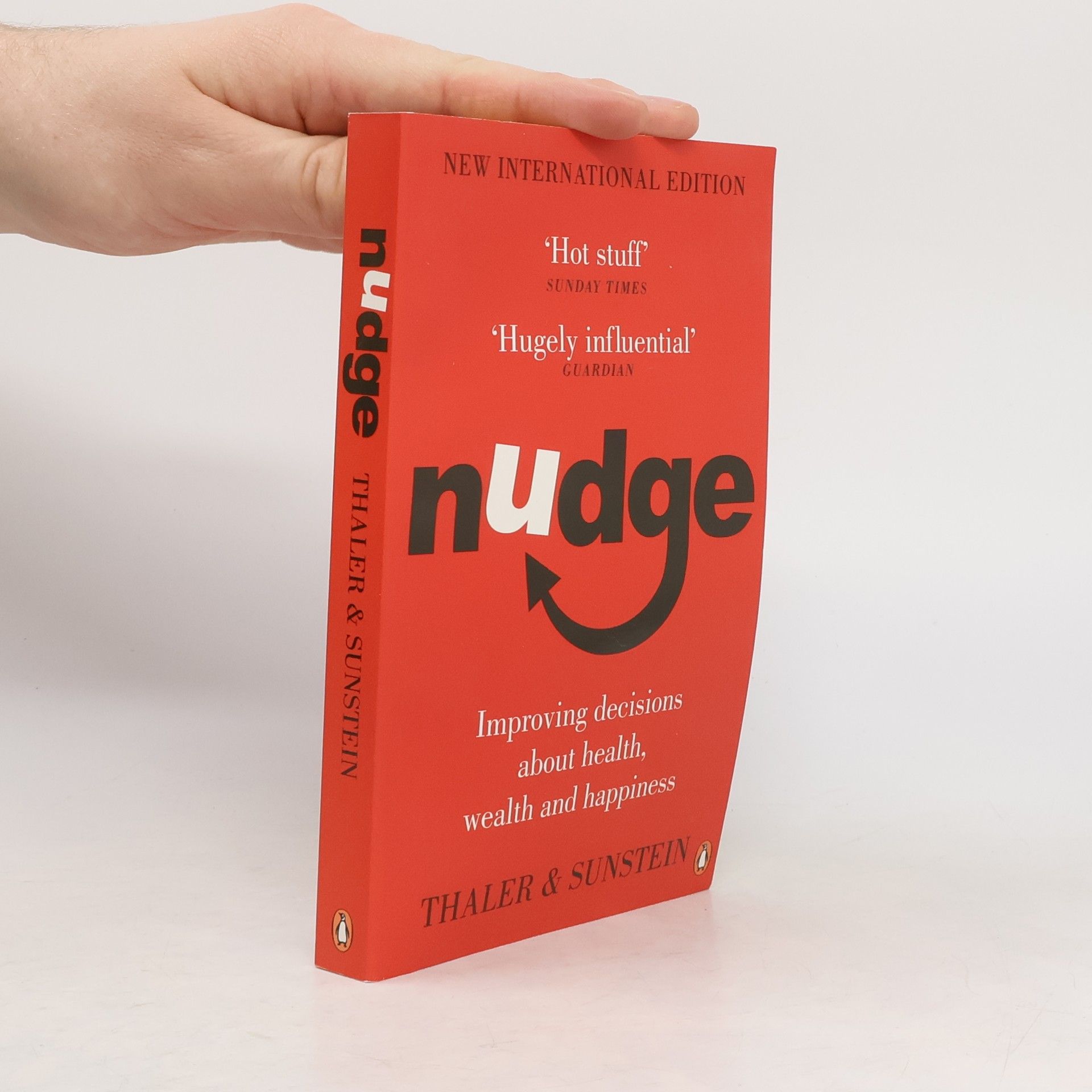The book explores the phenomenon of human blindspots, examining why people often overlook critical issues such as pollution, dishonesty, and bias. It delves into the adaptive nature of humans that, while beneficial, can also result in a lack of awareness. The authors provide insights and strategies to help readers recognize and overcome these blindspots, fostering a greater understanding of the world around them.
Cass Sunstein Book order (chronological)
Cass R. Sunstein is an American legal scholar whose work delves into constitutional law, administrative law, environmental law, and law and behavioral economics. He meticulously examines how human behavior intersects with and influences legal frameworks. Sunstein's distinctive approach often bridges legal theory with psychological insights, offering a unique perspective on societal functioning and regulation. His analyses provide profound understanding of the mechanisms that shape our legislation and social norms.







How do we decide how we decide? On the largest matters and the smallest ones, we make such decisions all the time. This book casts light on decisions about decisions-what they are, where they go wrong, and how they can be helped to go right.
Cover -- Table of Contents -- Introduction -- 1. Theories of Interpretation -- 2. The Inevitability of Choice -- 3. The Oath of Office -- 4. How to Choose -- 5. Traditions: "Athwart History, Yelling Stop" -- 6. Where to Stand -- Acknowledgments -- Index -- The Constitution of the United States.
The authors address concerns about the influence of unaccountable bureaucrats, referred to as the deep state, by advocating for a moral framework that promotes transparency and accountability in government. They argue that while the administrative state can appear daunting, it has the potential to operate on principled grounds, ensuring that rulemakers act ethically and do not misuse their power.
This book offers a comprehensive overview of contemporary perspectives on rationality within economics and social sciences. It presents a clear and self-contained exploration of how rationality is conceptualized and applied in these fields, making complex ideas accessible to a broad audience. By examining various theories and their implications, the text encourages readers to engage critically with the notion of rationality and its relevance in understanding human behavior and decision-making.
Liars
- 192 pages
- 7 hours of reading
Worldwide, people are circulating damaging lies and falsehoods through powerful social media platforms that reach billions. They range from claims that COVID-19 is a hoax to the theory that vaccines cause autism. In Liars, Cass Sunstein argues that free societies must generally allow falsehoods and lies, which cannot be excised from democratic debate. At the same time, governments should regulate specific kinds of falsehoods: those that genuinely endanger health, safety, and the capacity of the public to govern itself. Sunstein concludes that government and private institutions, like Facebook and Twitter, currently allow far too many lies, including those that threaten public health and democracy.
"The world is increasingly confronted with new challenges related to climate change, globalization, disease, and technology. Governments are faced with having to decide how much risk is worth taking, how much destruction and death can be tolerated, and how much money should be invested in the hopes of avoiding catastrophe. Lacking full information, should decision-makers focus on avoiding the most catastrophic outcomes? When should extreme measures be taken to prevent as much destruction as possible? This book explores how governments ought to make decisions in times of imminent disaster. Cass R. Sunstein argues that using the 'maximin rule,' which calls for choosing the approach that eliminates the worst of the worst-case scenarios, may be necessary when public officials lack important information, and when the worst-case scenario is too disastrous to contemplate. He underscores this argument by emphasizing the reality of 'Knightian uncertainty,' found in circumstances in which it is not possible to assign probabilities to various outcomes. Sunstein brings foundational issues in decision theory in close contact with real problems in regulation, law, and daily life, and considers other potential future risks" --Amazon.com
This Is Not Normal
- 208 pages
- 8 hours of reading
How our shifting sense of "what's normal" defines the character of democracy"A provocative examination of social constructs and those who would alternately undo or improve them."— Kirkus ReviewsThis sharp and engaging book by leading governmental scholar Cass R. Sunstein examines dramatically shifting understandings of what’s normal—and how those shifts account for the feminist movement, the civil rights movement, the rise of Adolf Hitler, the founding itself, political correctness, the rise of gun rights, the response to COVID-19, and changing understandings of liberty. Prevailing norms include the principle of equal dignity, the idea of not treating the press as an enemy of the people, and the social unacceptability of open expressions of racial discrimination. But norms can turn upside-down in a hurry. What people tolerate, and what they abhor, depends on what else they are seeing. Exploring Nazism, #MeToo, the work of Alexander Hamilton and James Madison, constitutional amendments, pandemics, and the influence of Ayn Rand, Sunstein reveals how norms change, and ultimately determine the shape of society and government in the United States, Europe, and elsewhere.
Sludge
- 166 pages
- 6 hours of reading
"A short manifesto on sludge, the goo that gums up the works of people working through various public and private systems, and why/how it should be reduced"-- Provided by publisher